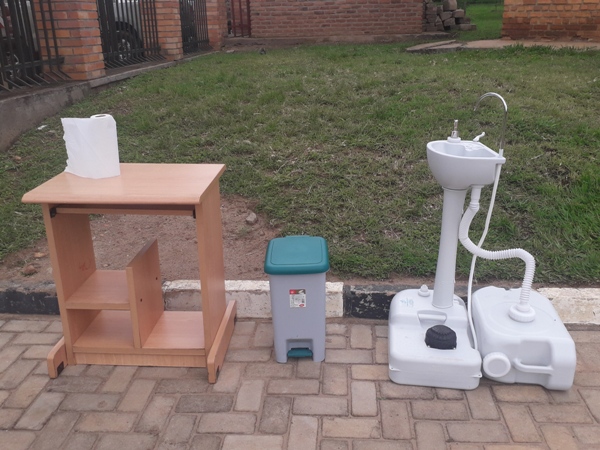
Kigali: Since March 14, 2020, the day CORONAVIRUS was first appeared in Rwanda, efforts to control the COVID-19 pandemic have been intensified countrywide to prevent its spread due to the rapid spread of the virus.
Rwanda Correctional Service (RCS) has continued to put in place measures to prevent the spread of the pandemic, as was the case throughout the country. So far, no person has been killed by this COVID-19 in our country.
Following the outbreak, measures were taken to stop all social gatherings, to mean churches, schools and universities, hotels and bars, markets, sports activities, and private and public transportation have been suspended to prevent the spread of the COVID-19 pandemic.
After about 40 days of curfew except emergency reason, the cabinet met on April 30, 2020, and approved that certain activities be carried out again in accordance with measures of preventing the Pandemic.
IP Jeanne MUKAGASANA, Referral & Hospitalization officer from RCS General Headquarters, said that COVID-19 preventive measures have been well managed as much as elsewhere in the country.
“In RCS, measures have been taken as much as possible. We have provided handwashing means in all entrance area, we also apply hand sanitizers to the entrance door of General Headquarters, in every office, as well as in all prisons. In addition, all correctional officials are obliged to wear masks.” IP Jeanne explained.
She also pointed out that at present some activities have been reopened and other enforcement of COVID-19 preventive measures have been put in place. In doing so, RCS has also complied with these measures; everyone should wear a mask while he/she is at work, and the RCS staff van has reduced number of staff, for it now does not exceed 15 staff while it used to carry 32 staff.
IP Jeanne stated that each RCS car was equipped with hand sanitizer and none entering the car without washing hands.
There are also COVID-19 prevention designed signs at the entrance to indicate how you should behave so that you cannot infect other people.
These measures have been taken at the same time as elsewhere in the country to make sure that in a given period of two weeks there will be positive changes so that life would be normal again after that period. (End)
